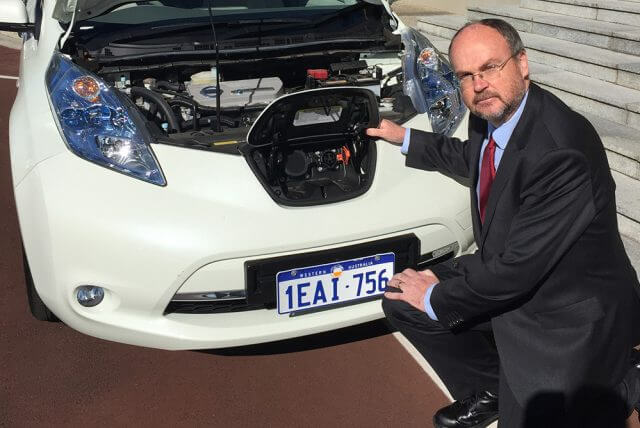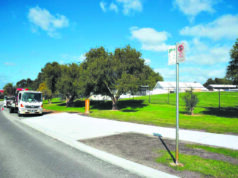
The state government was working on removing regulations that prevented households from exporting energy from their solar panels if they had a home battery or electric vehicle facilities installed at their property.
The regulations, written into standard energy provider Synergy contracts with homeowners installing or upgrading solar panels, said the equipment must not incorporate a battery storage or electric vehicle system.
Shadow energy minister Bill Johnston brought the issue up in parliament last month and called on the government and Energy Minister Mike Nahan to immediately overturn the regulation.
“The energy minister must immediately act to get rid of this rule so that people with solar power can have electric cars and batteries in their homes,” he said.
“Electric cars will become more affordable and more popular so it is crucial to overturn this crazy regulation as soon as possible.”
Dr Nahan said Synergy and Western Power were developing a service that would allow for the exporting of electricity from batteries and electric vehicles.
“They are working closely to find a solution that will cater for the expected proliferation of those facilities,” he said.
“I will provide an update when a solution has been developed in the coming weeks.”
The regulations were the result of a review of Western Power’s network access arrangement in 2012 by the economic regulation authority (ERA).
ERA chief executive Greg Watkinson said Western Power initially proposed a bi-directional reference service, which provided for customers who also had battery storage systems and electric vehicles.
“During public consultation on Western Power’s proposal, Synergy raised operational concerns regarding extending the reference service to battery storage and electric vehicles, he said
“Based on information available at the time the ERA considered that the characteristics of the service required by customers with battery storage or electric vehicles were likely to be different from those without and should not be included in the proposed bi-directional reference service.
“The ERA considered further work was needed to understand the impact on network costs before a reference service could be approved.
“However the ERA noted in its decision that such services could still be offered to users as non-reference services if there was demand.”
A Western Power spokesperson said energy being fed back into the grid through battery and electric vehicle facilities would have no impact on the network.
Synergy was contacted but did not respond before deadline.













